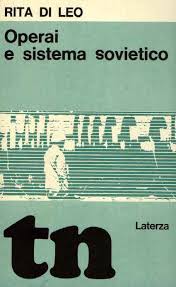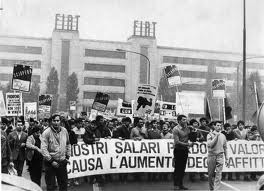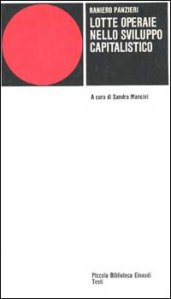Excerpt from “Extremism and Reformism” by M.Tronti
Posted: March 27, 2014 in UncategorizedTags: Mario Tronti
An excerpt from Mario Tronti’s essay “Extremism and Reformism” published in the first issue of Contropiano from 1968. This essay was the first in a trilogy, the other two, “The Party as Problem” and “Internationalism Old and New”, were published in Contropiano #2 and #3. In Extremism and Reformism, after arguing that a revolution of the “October 1917 type” was no longer adequate to the period of mature and planned capitalism, Tronti argued instead for a working class management of capital, through the strategy of the party working within and against the capitalist state. In this strategy, the party, in conjunction with the workers struggle from below, particularly around the struggle over the wage, would seek to struggle within the state to break its function as the defender of collective capital and aim for government. This entailed a workers tactical use of social democracy, with the aim of forming government, and from the vertice of the state and the active struggle of the working class from the base, would allow for a non capitalist management of capital by the working class. This essay also formed the focal point for Negri’s break with Contropiano, and ultimately the strategy of within and against, and his response came in the second issue in the essay “Marx on the Cycle and Crises.”The following excerpt focuses on Tronti’s understanding of the “modern working class”, contains the well known phrase of the workers as a rude and pagan race, and its hatred of labour. It also focuses on the relation of production in the phase of social capital and the necessity of the working class to direct and control the modern relation of production, submitting or reducing capitalist development itself to its own purposes and for its own political development; a workers use of capitalist development.
“The modern working class, and not simply the one of today, want above all else two things: to work less and earn a lot. More: they want power to guarantee these two conquests from the ebb and flow to which they are subjected to by the unchallenged domination of the capitalist interest. They want to work less because they hate work and hate work more than anything, more than the boss, because work, in their confrontation with it, is the boss two times, on the one hand as capitalist exploitation and on the other as socialist ideology; as iniquitous profit of the single capitalist and on the other as the equitable profit of social capital: the ethic of work is a christian-bourgeois ethic, very distant and hostile to the workers consciousness. They want to earn a lot because they love the “good life” (benessere); they have learned from socialism that misery can be eliminated and from capitalism that they can, very well, make use of the wealth and they have no intention whatsoever of renouncing this profane promise; they love life and do not give a care whatsoever of the ascetic consolations from the products of the intellectuals and they know how to understand and recognize only the earthly joy and happiness of all the human senses: they are a rude pagan race, without ideals, without faith, without morals. And they want power, power as despotism, as the possibility of having at their disposal the wealth of the nation in an absolute manner, taking hold of the general social interest and making it serve their narrow class interest, – worker’s exploitation of wealth and the bearers of it, the capitalists and their servants the functionaries, workers exploitation of capital; power therefore with the polarity reversed, but no longer with ideology, without the democratic masquerade of the rights of man and the citizen. From the inside of capital and exploiting its necessity to work, there should rise, from productive industrial labour to non industrial productive labour to indirect productive labour to non productive labour, there should rise a new hierarchy, not of values, but, in fact, of power, which for a long provisional historical period, should reorganize and grasp the thread of the new social relation and coincide with the distribution force and of the domination over the political terrain directly. We should courageously assume the principle that not only does capital need the working class, but the working class needs capital and not only for its own political growth but for the economic development of society. Modern capital is development, the modern working class is power. Or more correctly, these must become the new conditions of the class struggle. It is true that all the archaic oppositions have collapsed between the two social classes: but in this sense only the prehistory of the class struggle has finished. No longer proletariat and bourgeoisie, exploited and the exploiter, no longer a subaltern class and a dominant class, but instead, capitalist economic development on the one hand and workers political power on the other, – two forces, each one on its side, of equal power, with historical characteristics similar to each other, with the equal vocation of the dominance of the part over the whole, who are fighting, with ability and violence, in a long war in which we can see neither the end nor who the victor will be.” (M.Tronti, Extremism and Reformism, Contropiano #1 1968)
G.J




